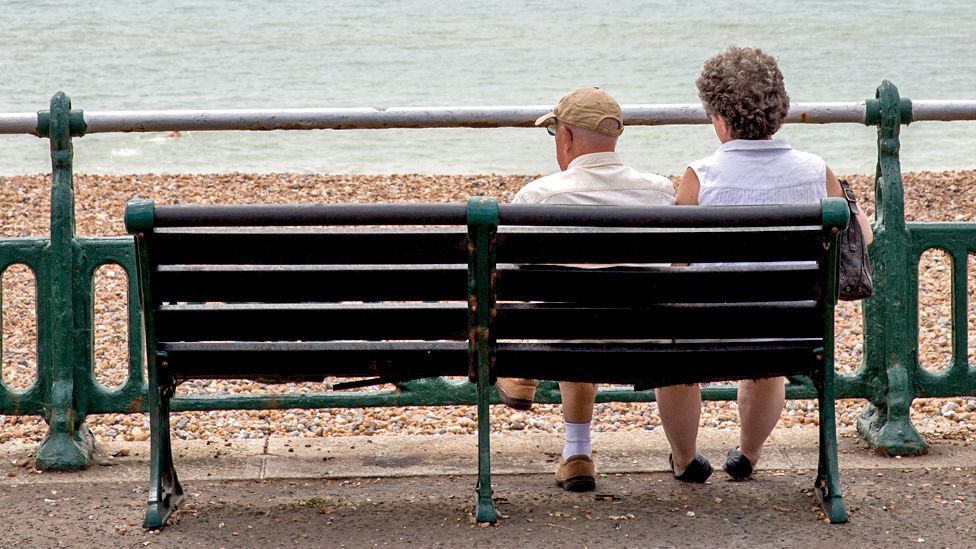ARTICLE AD BOX
 Image source, Getty Images
Image source, Getty Images
By Michelle Roberts
Digital health editor
The UK faces an ageing crisis and healthcare must step in, England's Chief Medical Officer, Prof Sir Chris Whitty, warns in his annual report.
People are living longer but some spend many of their later years in bad health - and that has to change, he said.
Based on projections, the elderly boom will be in rural, largely costal, areas and these places are often poor cousins when it comes to provision.
In deprived regions, age-related issues emerge 10 years earlier, on average.
While young people flock to wealthy cities, areas such as Scarborough, North Norfolk or the south coast of England are going to age "rapidly and predictably", says the report - Sir Chris's fourth in the role.
He told me: "We've really got to get serious about the areas of the country where ageing is happening very fast, and we've got to do it now.
"It's possible to compress the period of time that people spend in ill health...because otherwise we will end up with large numbers of people leading much more dependent lives."
Providing services and environments suitable for older adults in these areas is an absolute priority, the report says.
Much of the NHS's work is already caring for an ageing population, and that is set to increase.
The fact that people are living longer compared to a century ago is "a triumph of medicine and public health".
But the emphasis needs to be on quality, not quantity, says the report.
It says major action in two areas could help turn things around:
- Policies to reduce disease and disability and help people to exercise, eat well and stay fit
- Making housing, transport and other parts of the environment more elderly friendly, so people can live out their lives as independently as possible
Sir Chris explained: "Houses are built for young families...and if you project forward to the middle of the century, a quarter of the population will be over 65, yet we still have a housing stock not designed for that age group."
He said people should adopt "old-fashioned" methods to stay healthy.
"Having lots of exercise, having mental stimulation and a social network, eating a reasonably balanced diet... these are things which are old-fashioned, but they still work."
People should also make choices about what care they do and don't want, and doctors should refrain from over-treating.
Improving quality of life in older age sometimes means less medicine, not more, says the report.
Sir Chris said: "That might be, 'I want to go to hospital but I don't want to go to intensive care'. It might be, 'I want to have treatment but I don't want to have an operation'. Or it might be 'I don't want any more treatment at all'. The conversation needs to be had."
Prof Dame Carol Black, from the Centre for Ageing Better, said: "Many people are facing enormous challenges and hardship in their later years, as this report makes clear.
"We don't all have an equal opportunity to age well. Wealth, work, housing, discrimination; all play a significant role in the huge gap in healthy life expectancy between the richest and poorest areas of the country."
Paul Farmer, chief executive at Age UK, called for a cross-government ageing strategy, and a minister for older people to help drive forward change.
"We can already see how the failure to invest in delivering the right services and support is leading to worse outcomes for older people and entirely avoidable problems," he said.
"Older people are isolated at home if the design of our communities means they can't safely go out. People end up falling, and in the back of an ambulance if our built environment is full of trip hazards.
"Our hospitals are over capacity at least in part, due to the failure to provide adequate social care and community services to enable people to stay safe and well at home. None of this is inevitable. Getting it right would have immeasurable benefits."
Related Internet Links
The BBC is not responsible for the content of external sites.

 1 year ago
46
1 year ago
46








 English (US) ·
English (US) ·